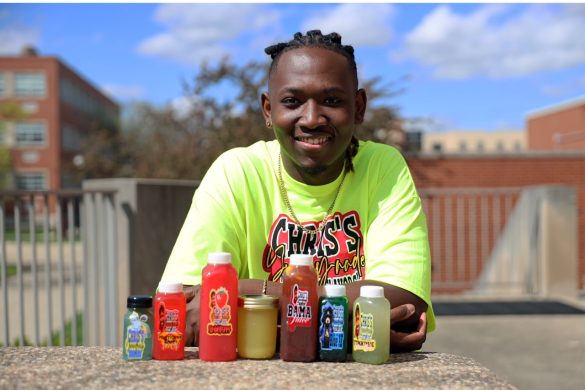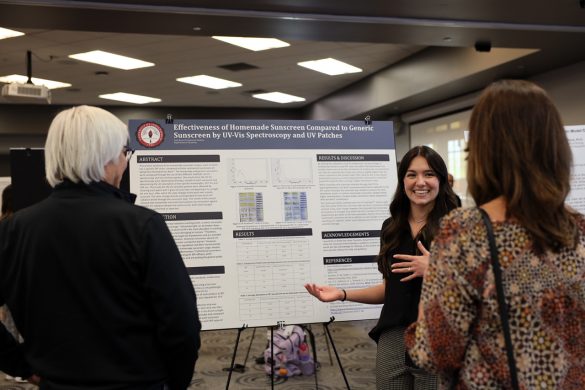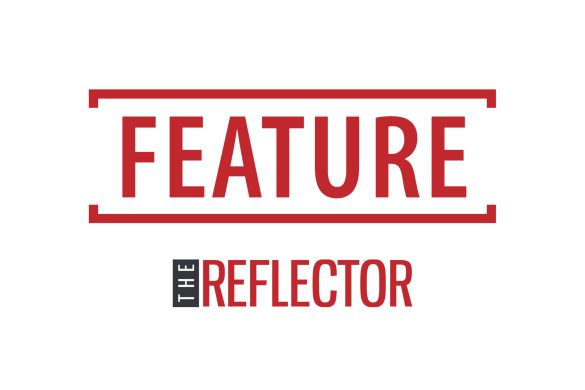President-Elect Donald Trump stood in front of Trump Tower and formally announced that he would be running for president of the United States, claiming he would “make America great again” on June 16, 2015.
After winning the most state primaries, caucuses and delegates, Trump secured the 2016 Republican nomination. On July 15, 2016, Trump announced via Twitter he had selected Mike Pence, the governor of Indiana, to be his running mate. Pence formally accepted the nomination five days later at the Republican National Convention.
Trump’s indifference to political correctness was a dominant theme of his campaign and favored by his supporters. His most polarizing and widely reported statements were about issues of immigration and border security, more specifically his proposal to deport all illegal immigrants, build a wall on the border between the United States and Mexico, at Mexico’s expense, and the temporarily ban foreign Muslims from entering the United States, which he later modified to only those originating from countries with a history of terrorism against the United States or its allies.
The Trump campaign rallies attracted large crowds and public controversy because of the violence between his supporters and protestors.
The New Yorker magazine reported that despite the lack in organization of his campaign, Trump’s base of white, working-class voters turned out in large numbers on Election Day. According to CNN exit polls, Trump carried white voters who do not have a college degree 67 percent to Hillary Clinton’s 28 percent. These voters make up about 40 percent of the over all electorate, giving Trump a solid base. According to the same poll, Trump received 49 percent of the votes from college-educated white voters. Overall, men were primarily responsible for Trump’s win.
The poll also found that, 54 percent of women voted for Clinton, while only 42 percent voted for Trump. Men voted for Trump 53 percent to Clinton’s 41 percent, and 37 percent of respondents said that Trump was qualified to be president, while 61 percent said that he was not. Meanwhile, 53 percent of exit poll respondents said that Clinton was qualified to be president.
Trump was elected the 45th president of the United States on Nov. 8, 2016. As the results started coming in, the race proved to be very close. Trump was securing all the states he needed: Texas, Florida, Ohio, even Pennsylvania and his opponent’s former home state of Arkansas.
Around 3 a.m., the next day, after receiving a phone call from Clinton in which she conceded from the race, Trump stepped out on stage in front of his supports and accepted his new position. Trump did something in this speech he had not done before while participating in this election: he called for a united nation.
“I say it’s time for us to come together as one united people. It’s time,” Trump said in his acceptance speech. “I pledge to every citizen of our land that I will be president for all Americans.”
With the polling data being wrong, voters wondered how Trump secured the presidency especially when Clinton won the popular vote by 668,171 votes. However, the popular vote does not elect the president.
According to CNN’s exit poll, an estimated two-thirds of the population who earn more than $50,000 dollars a year voted for Trump. An article in The New Yorker magazine stated that because there are more of these voters, their numbers were enough to give Trump the victory.
Another factor could be the number of votes for a third party candidate. Six point nine million voters chose not to vote for either the Republican or Democratic nominee because they were dissatisfied with their choice of candidates, according to an article by National Public Radio.
Ultimately, the main reason Trump gained the presidential victory was because he won significantly the states with white, working-class voters in the Midwest and Pennsylvania that originally belonged to Clinton, according to that NPR article.
However, the media also played a significant role in this election. Fox News anchor Bret Baler reported on the letter from Federal Bureau of Investigation Director James Comey regarding Clinton’s email scandal days before the election. According to NPR, the letter played a role in favor of Trump’s campaign and strengthened his argument that Clinton was untrustworthy and a criminal.
Associate Professor of Communication Darryl Clark said he thought the outrageous things Trump said during the race helped him gain more media attention.
“I think there’s no doubt about that the outrageous things he said helped him to get more media attention,” Clark said, “especially in the primaries when there were 16 different people running for the GOP nomination. It was really hard to be heard, except for Donald Trump. Most everything he said was aired. And because it was mostly outrageous stuff, people were attracted to it, and it shot the ratings up, which gave the networks an incentive to disproportionally air more Donald Trump.”
Clark also thinks that Trump got more of the media coverage during the general election because of Clinton’s strategy of staying quiet while Trump continued to speak his mind.
“I think he also got more media coverage during the general election, but I think that’s mostly because Hillary was following the political strategy that when your opponent is making himself look bad, you’re supposed to let him continue making himself look bad,” Clark said. “Don’t take the spotlight away. So instead of holding as many rallies and stuff, she tended to have small fundraisers that didn’t really make news.”
Another factor Clark thinks may have influenced the election is the way Americans consume media.
“I think another thing that we really should look at is consumer behavior, how people are consuming media. How many people are getting their media from Facebook? There have been some stories written about [the] inaccurate stories that blew up on Facebook – one that said the Pope endorsed Donald Trump.… And also [there are] people engaging in confirmation bias. Going to media sources, or listening to friends on Facebook, hiding the friends that upset them by their political views.”
In his acceptance speech, Trump said that even though the campaign is over, the work is only just beginning.
“Nothing we want for our future is beyond our reach,” Trump said in his acceptance. “America will no longer settle for anything less than the best.”







